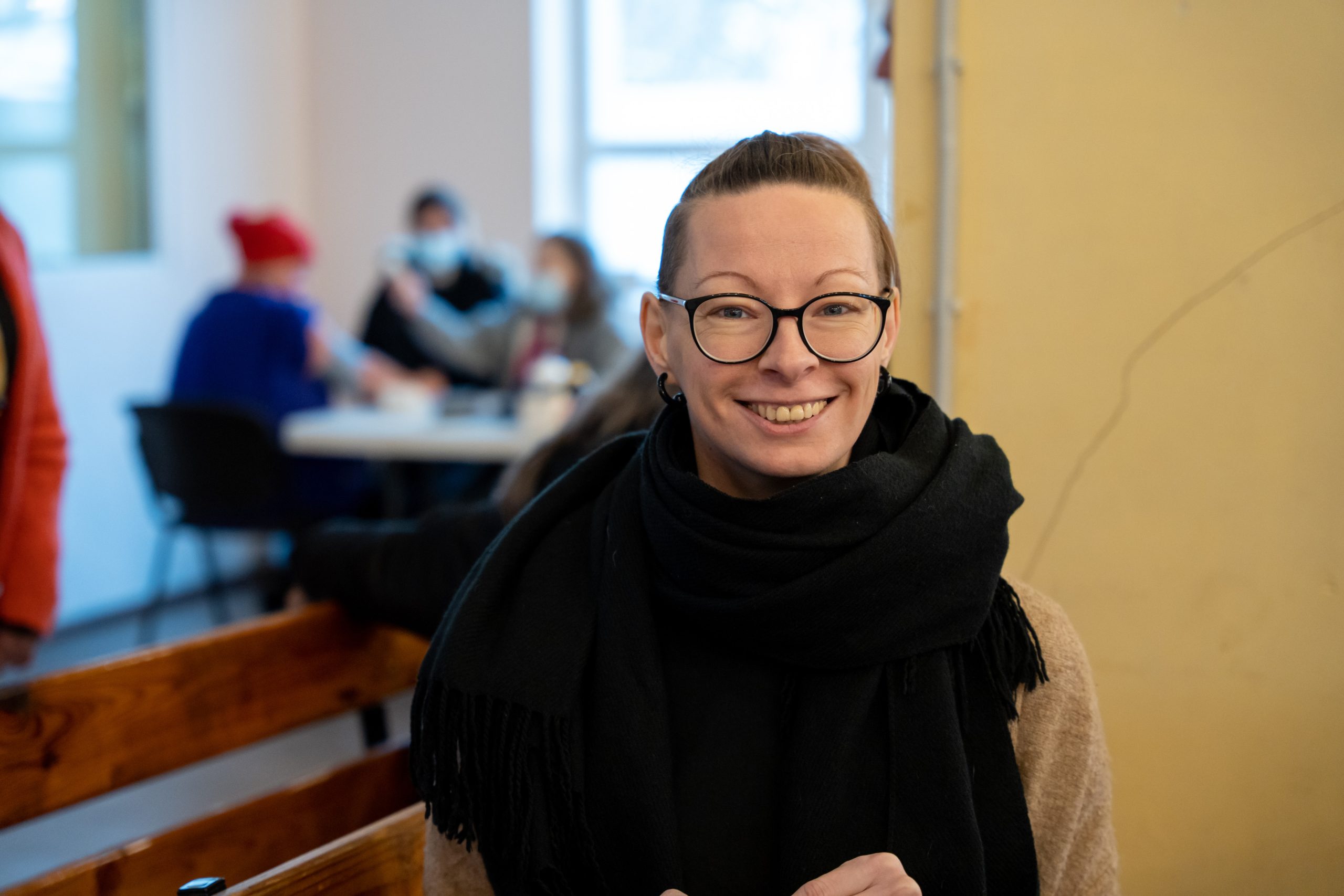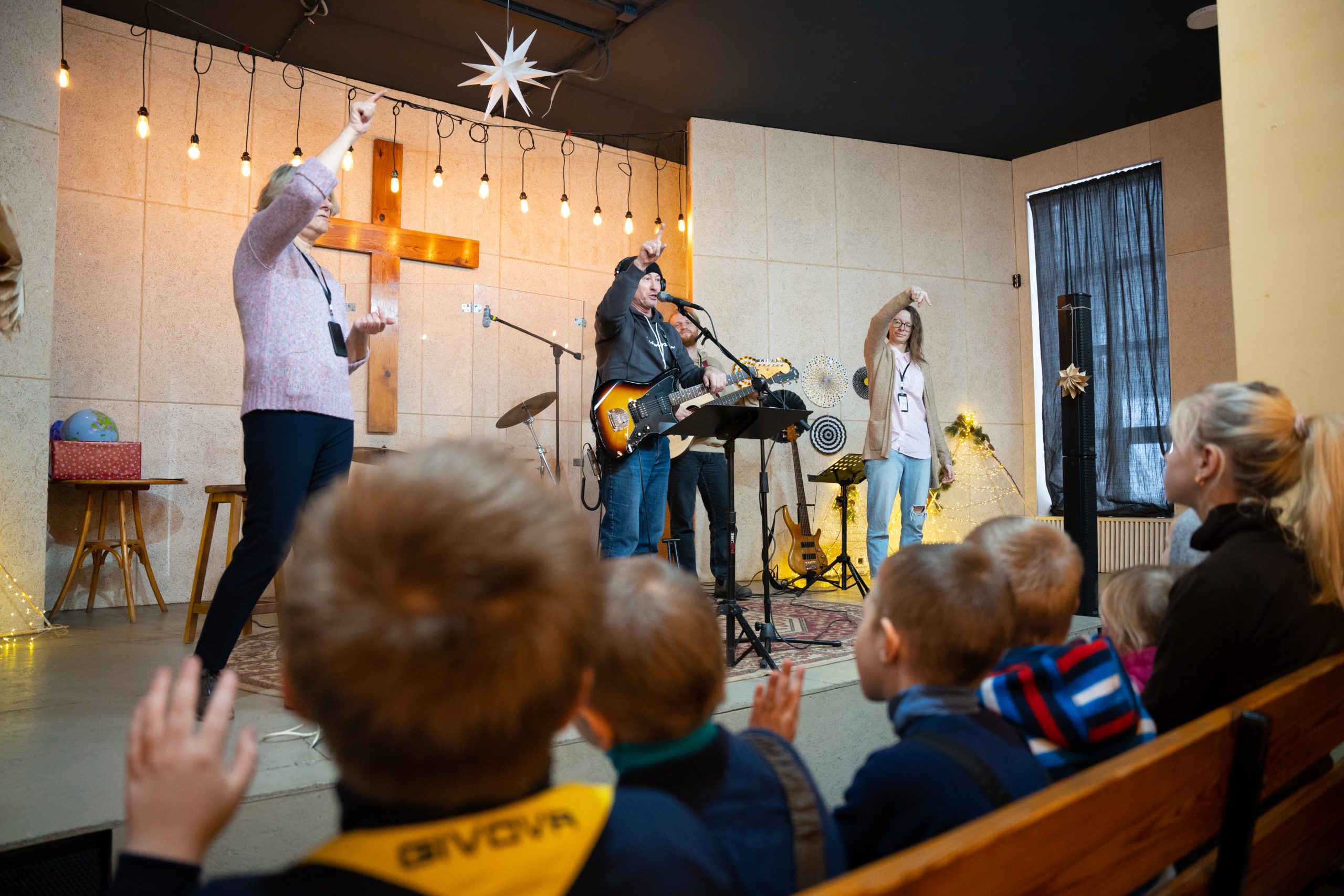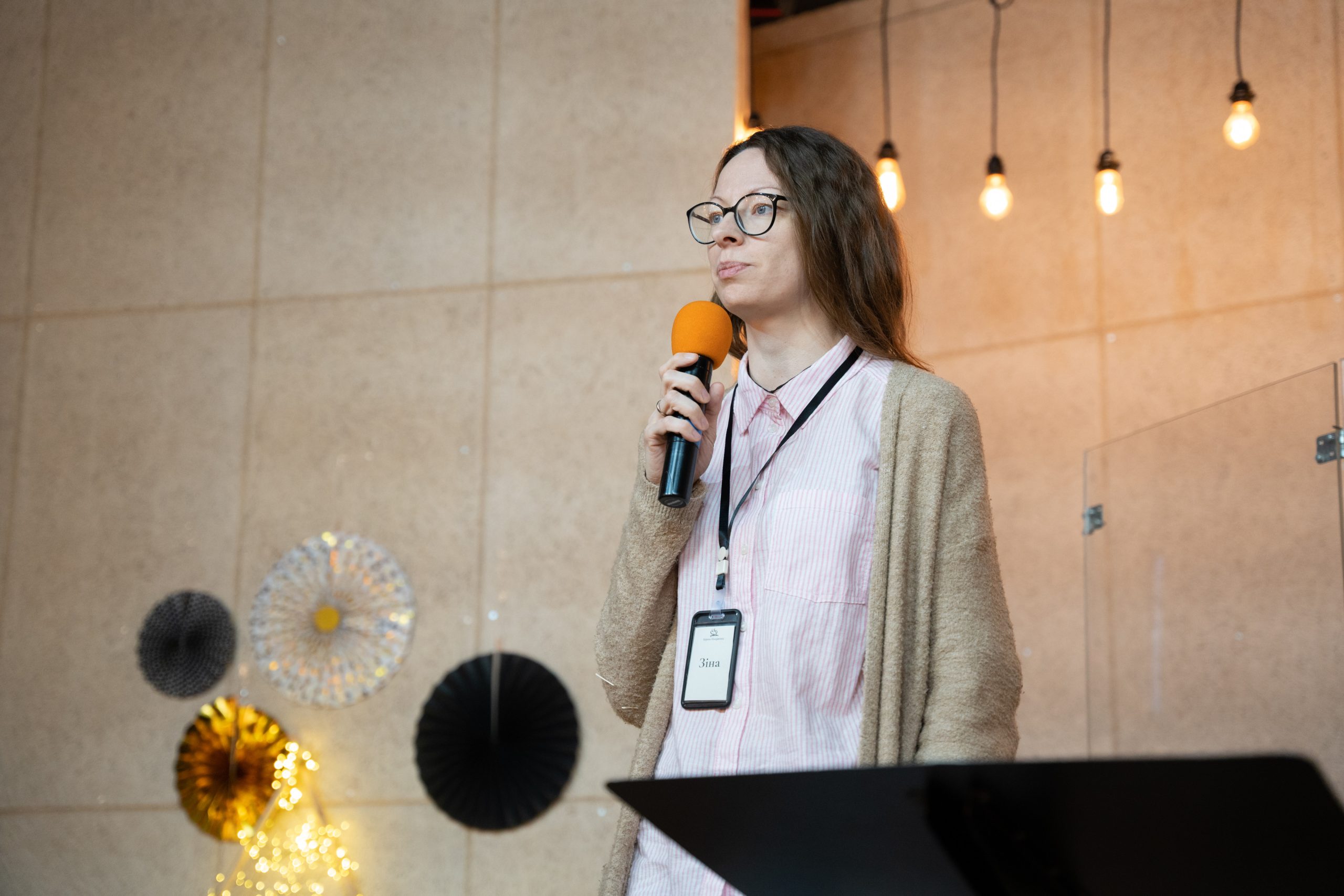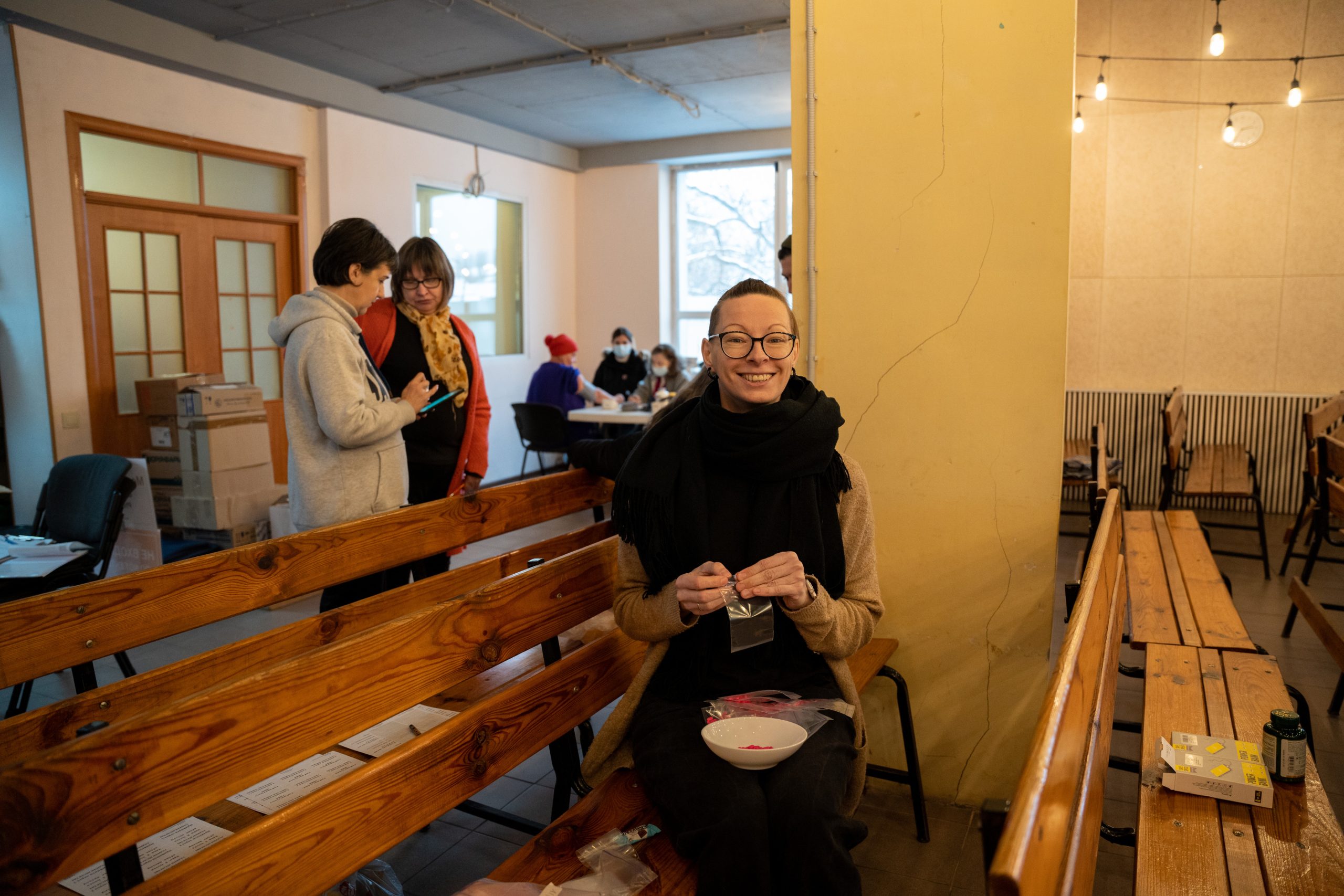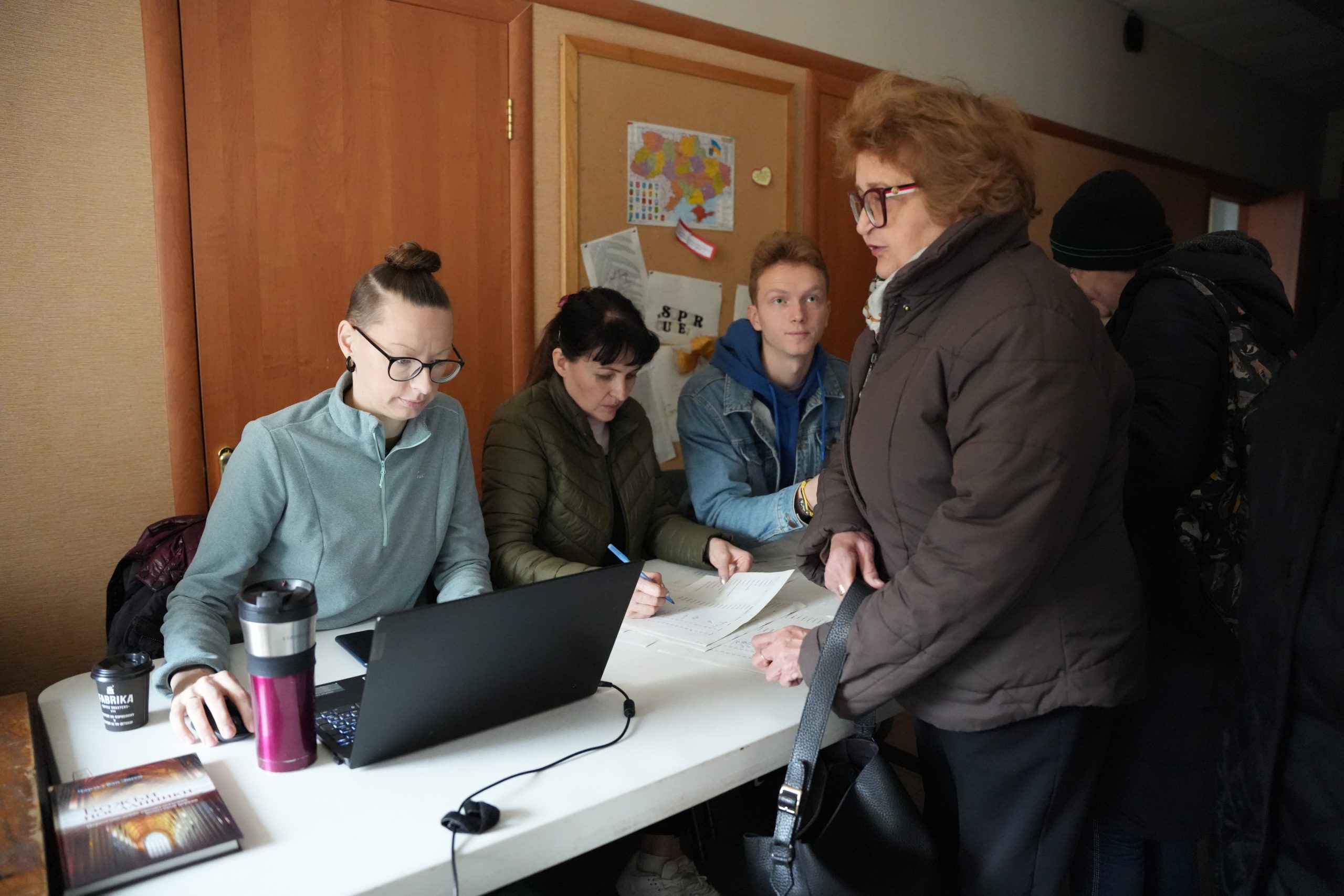Zee Gimon remembers standing in her rental kitchen in Berlin, struggling with homesickness.
“I love to cook,” she says. “I have a huge assortment of spices at home in my kitchen.” But in Berlin, the only spices in the cupboard were salt and pepper.
“That was hard,” Zee says, frowning. “I cannot buy all the spices that I have at home—because I’m going back. But at the same time, how can I find something that would bring me joy? Because I love cooking.”
It was the summer of 2022, and Zee was living with the daily tension of a life in two places—the life of a refugee.
When the war broke out, Zee’s husband joined the Ukrainian territorial guard. The couple decided that she and their two children would remain at home. “We had absolutely no desire to leave,” she says.
They prepared to wait out the war as safely as possible, purchasing non-perishables and extra water. But after a short period of living in multiple temporary homes, including her church, Zee made an incredibly difficult decision: she and her children would leave Ukraine. Her husband, serving in the military, would remain.
“For me,” Zee says, “it was important that he would be not thinking about us, because we were fine, but thinking about what he has to do.”
So she gathered her two children, her mother, and the family cat, and left Ukraine.
Five days later, they found themselves in Berlin. Had the family wanted to move, Zee says, the city would have been the perfect fit. Her kids went to a private Christian school, she and her mother volunteered at their local church, and they quickly found new friends. “Germany was great,” she says, “but we still were refugees. It wasn’t home.”
While their apartment was spacious and comfortable, Zee missed sleeping in her own bed and cooking with her multitude of spices. “I wanted to have my tiny apartment with everything in place,” she says.
Daily, Zee continued to be reminded of the life and loved ones she had left behind. She was filling out a form and read the question, “Are you a single parent? Yes or no.”
“It took me a week to answer the question,” she says. “I just couldn’t bring myself to answer.” In Germany, she was operating as a single parent. “But on the other hand,” Zee remembers thinking, “I’m not a single parent, because my husband is, for the moment, alive.” She had to officially state that she was acting as a single parent to receive some services. “It was super scary,” she says. “I was so used to relying on my husband. We were always together; we did ministry together, we worked together, we did family together.”
Losing the physical support and presence of her husband was awful, and yet Zee says that this is what pushed her into a deeper relationship with God. “I only had God to lean on,” she remembers.
Zee says those hardest moments were when she was most thankful that she served a God who answers prayers. “Because there were mornings when I would get up,” she says, “and I would be like…I don’t have any strength. I have no idea how I will live this day.” But each day there would be just enough grace—her daily manna. God carried her through every difficult hour, and her trust in him deepened.
She began to read the Bible with fresh eyes, particularly the Psalms. She would read of David crying out to God in anger, then finishing with praise. Before the war, verses like these baffled her. “He was just yelling at everybody, yelling at God,” she says. “Then he’s like…‘Praise God.’ What’s going on?”
Once the war began, however, Zee was shocked to find her own written spiritual reflections to be strikingly similar. They began with painful honesty: “God, this is horrible,” she remembers writing. “They’re destroying my land; they’re killing my people; they’re doing everything that doesn’t make any sense.” She would pour out her heart, often in anger, and still find herself returning to devotion. “In the end,” she says, “I would come up with…‘Well, you’ve taken care of us before, so obviously you’re going to take care of us now. You’ve given the daily manna for today. Praise God.’”
“Before the war,” she adds, “I could never understand that.”
After months in Berlin, with the attacks on their country still raging, Zee and her mother decided that they would return to Ukraine.
“The problem with being a refugee in another country,” she says, “is that you only find out information about your country by reading the news. And they don’t share normal life in the news. They don’t share the fact that you can go to your favorite grocery store and get the cheese that you love, on sale. Or, that you go and you accidentally meet your longtime friend. All these things you don’t experience, because you cannot read about them.
“It’s hard to understand probably,” she says, “if you’ve never left your home because of something like a war…but it feels so good when you come back.”
Today, amid the air raid sirens and blackouts and spotty access to heat and water, Zee and her family are home. They continue to trust that God will provide their daily manna.
When she doubts, she reminds herself of a particular day that God showed his faithfulness in Berlin, arriving in the form of an unexpected delivery in the mail.
“It was an absolutely surprise package,” she says. “I opened it, and there was a collection of spices, an entire box filled with McCormick spices. My mom laughed at me, because I carried that box around in my arms, hugging it for like, three days. I almost slept with it.”
In those days, like these days, Zee saw that God would provide what she needed to make it through. “There would be just enough grace for the day,” Zee says, remembering. “If God gave enough for this day, then he will give enough for one more day, and one more day, and one more day.”
– article by Sarah Norris
– photos by Genadiy Naumov
Nazarene Zee Gimon serves at Kyiv Church of the Nazarene, Ukraine
